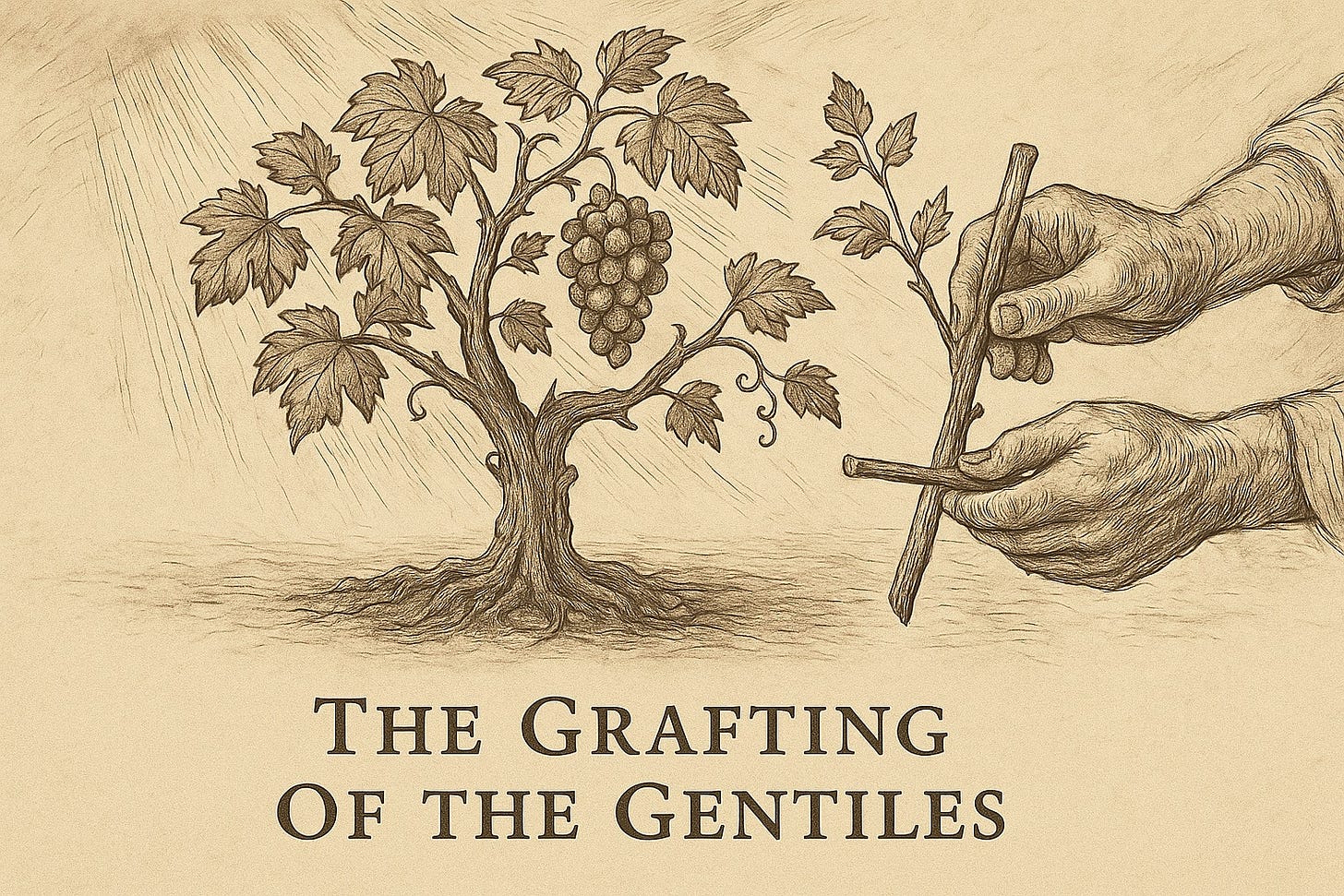The Grafting Of The Gentiles
Whether Jew or Gentile, we are saved in Christ. He is the root of the olive tree. We either abide in Him or are already condemned.
Romans 11:11-24
I ask, then, have they stumbled in order to fall? Absolutely not! On the contrary, by their stumbling, salvation has come to the Gentiles to make Israel jealous. Now if their stumbling brings riches for the world, and their failure riches for the Gentiles, how much more will their full number bring!Now I am speaking to you Gentiles. In view of the fact that I am an apostle to the Gentiles, I magnify my ministry, if I can somehow make my own people jealous and save some of them. For if their rejection brings reconciliation to the world, what will their acceptance mean but life from the dead? Now if the firstfruits offered up are holy, so is the whole batch. And if the root is holy, so are the branches.
Now if some of the branches were broken off, and you, though a wild olive branch, were grafted in among them and have come to share in the rich root of the cultivated olive tree, do not brag that you are better than those branches. But if you do brag—you do not sustain the root, but the root sustains you. Then you will say, “Branches were broken off so that I might be grafted in.” True enough; they were broken off by unbelief, but you stand by faith. Do not be arrogant, but be afraid. For if God did not spare the natural branches, He will not spare you either. Therefore, consider God’s kindness and severity: severity toward those who have fallen but God’s kindness toward you—if you remain in His kindness. Otherwise you too will be cut off. And even they, if they do not remain in unbelief, will be grafted in, because God has the power to graft them in again. For if you were cut off from your native wild olive and against nature were grafted into a cultivated olive tree, how much more will these—the natural branches—be grafted into their own olive tree?
As Gentiles, we did not replace Israel but we were grafted in. Israel’s stumbling was our gain.
ONE ROOT: JESUS CHRIST
Paul also gives us, the Gentiles, a stern warning. Though some of Israel’s branches “were broken off” so we could be “grafted in among them” that we may “share in the rich root,” we must “not be arrogant, but be afraid” because “if God did not spare the natural branches, He will not spare you either.”
Remember John 15:6, in which the Lord says: “If anyone does not remain in Me, he is thrown away like a branch and dries up; and they gather them and throw them into the fire, and they are burned.” Anyone who does not abide in Christ stands already condemned (John 3:18).
All are under the same condition for salvation now: “repent and believe in the gospel” (Mark 1:15). In former times, sins were overlooked with various types of sin offerings (Hebrews 10:4), but those times are now over. Acts 17:31 says God “overlooked the times of ignorance” and “God is now proclaiming to mankind that all people everywhere are to repent.”
ONLY BY THE BLOOD OF THE LAMB
Even those of Jewish descent are not exempt from being in Christ (Matthew 3:9). Christ, and Christ alone, is the One who saves us from the Father’s wrath (Romans 5:9). No one’s ancestry, nationality, or any other religion (even Judaism) will be able to save those who are not covered by the blood of the Lamb.
Some believe we shouldn’t evangelize the Jewish people, but Paul makes it clear that only by their belief in Christ can they too be “grafted in again.” As Matthew Henry wrote, “The conversion of a soul is the receiving of that soul, so the conversion of a nation. They shall be received into favour, into the church, into the love of Christ, whose arms are stretched out for the receiving of all those that will come to him. And this will be as life from the dead—so strange and surprising, and yet withal so welcome and acceptable. The conversion of the Jews will bring great joy to the church.1”
CONCLUSION
Christ is the root of all believers. There is “neither Jew nor Greek, there is neither slave nor free man, there is neither male nor female; for you are all one in Christ Jesus” (Galatians 3:28).
Abide in Christ (John 15:4-10), or perish (Luke 13:1-5).
Matthew Henry, Matthew Henry’s Commentary on the Whole Bible: Volume VI-I, Acts - Romans, (Devoted Publishing, 2018), p. 425




